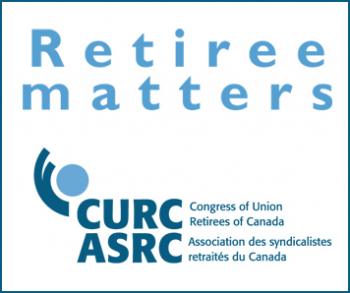Like this article? rabble is reader-supported journalism. Chip in to keep stories like these coming.
The popular image for the changeover in the calendar combines an old man with an hourglass and scythe giving way to a bouncing baby. As the calendar changes in 2016, how will the lot of seniors change?
Forty years ago, Canada made dramatic improvements to the incomes of seniors, thanks to the introduction of the Canada and Quebec Pension Plans (CPP/QPP) plus the Guaranteed Income Supplement (GIS). Unfortunately the last decade has witnessed a gradual increase in the poverty rate among older Canadians. In the last election, the Liberals promised to increase the GIS by 10 per cent — a good promise, though 15 per cent would have been even better in eliminating senior poverty. This promised increase in the GIS did not get a mention in the speech from the throne and by the first week of 2016, the Liberal government had already shelved the election promise to improve pensions. Seniors in Ontario are facing even higher electricity rates in January, so more than ever, the time to act is now. The government was able to reduce the amount that the wealthy could put into Tax Free Savings Accounts in its short December session but was not able to increase protection for poor seniors.
Even more noticeable was the failure of the Liberal government to appoint a minister for seniors. No minister even had this as a secondary title. In contrast, there are ministers for children, youth, women, the disabled, Indigenous peoples, refugees and veterans. Though seniors are the fastest-growing age demographic, they did not merit a minister to speak on their behalf.
Seniors were pleased that the government gave a priority to discuss enhancement in the CPP as this will be crucial to tomorrow’s aging population. Important workplace plans have had problems as a result of firms like Nortel and US Steel going bankrupt. This fact indicates the importance of an expanded public, universal program. There is also a need to change the bankruptcy laws so firms won’t walk away from their obligations to the pension plans of their workers.
While the government has for now backed away from changing pension plans in the federal public sector from defined benefit to a targeted benefit, seniors will be watching the government closely as Minister of Finance Bill Morneau had in his private business advised the New Brunswick government on such a move.
As much as possible, seniors want to age in place. The Liberal promise to invest more money in home care services is welcome. Equally important will be how provinces respond. Too often provinces have sought to save money through competitive bidding that has caused good services like the Victorian Order of Nurses (VON) to shrink and thereby lessen the availability of good care for the elderly. It is through a good home care service and a national pharmacare program that some of the cost concerns around medicare can be addressed.
Seniors want to play a full role in 2016 — and don’t want to be forgotten as the sand drains out of the hourglass.
Retiree Matters is a monthly column written by members of the Congress of Union Retirees of Canada (CURC) that explores issues relevant to retirees, senior citizens, their families and their communities. CURC acts as an advocacy organization to ensure that the concerns of union retirees and senior citizens are heard throughout Canada.
Like this article? rabble is reader-supported journalism. Chip in to keep stories like these coming.



